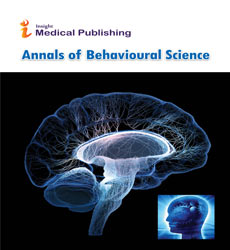Abstract
Speaking Rate among Adult Hebrew Speakers: A Preliminary Observation
Background: Speaking rate is an important basic temporal characteristic of speech, essential for research as well as clinical applications. Accordingly, it has become a common measure in studies conducted in various fields, such as speech science, speech pathology, behavioral psychology, neuropsychology and emotions. Yet, normative speaking rate data, which are language specific, are still required. This study was aimed to provide preliminary data on speaking-rate and articulation-rate among Hebrew speaking adults, and to examine differences between genders and age-groups. Methods and Findings: Recordings of 78 Hebrew speaking adults (39 men and 39 women) in three age-groups (20-40 years, 41-60 and 61-above) were analyzed. All recordings were obtained from radio broadcast interviews. Speaking rate and articulation rate were quantified using two metrics: syllable-per-second (SPS) and word-per-minute (WPM). Results revealed a mean overall speaking rate of 5.60 SPS and 154.11 WPM, while articulation rate was 6.26 SPS and 175.70 WPM. A gradual reduction in both metrics was observed between the three age-groups. This reduction reached a statistical significance only between the younger and older age-groups (p<0.001). In contrast, no differences in speaking- and articulation-rate were found between men and women. Conclusions: This study provides preliminary data on speaking- and articulation-rate values for adult Hebrew speakers. Data support previous reports on a general reduction in speech rate of the older age group, while demonstrating a lack of gender difference. Results facilitate a comparison of rate measurements performed in Hebrew with those obtained in other languages. Data also provide a baseline for future comparison of speech and fluency characteristics in various pathological groups with normally fluent speakers.
Author(s):
Ofer Amir
Abstract | Full-Text | PDF
Share this

Google scholar citation report
Citations : 153
Annals of Behavioural Science received 153 citations as per google scholar report
Abstracted/Indexed in
- Google Scholar
- China National Knowledge Infrastructure (CNKI)
- CiteFactor
- Cosmos IF
- Directory of Research Journal Indexing (DRJI)
- WorldCat
- Publons
- Secret Search Engine Labs
Open Access Journals
- Aquaculture & Veterinary Science
- Chemistry & Chemical Sciences
- Clinical Sciences
- Engineering
- General Science
- Genetics & Molecular Biology
- Health Care & Nursing
- Immunology & Microbiology
- Materials Science
- Mathematics & Physics
- Medical Sciences
- Neurology & Psychiatry
- Oncology & Cancer Science
- Pharmaceutical Sciences

